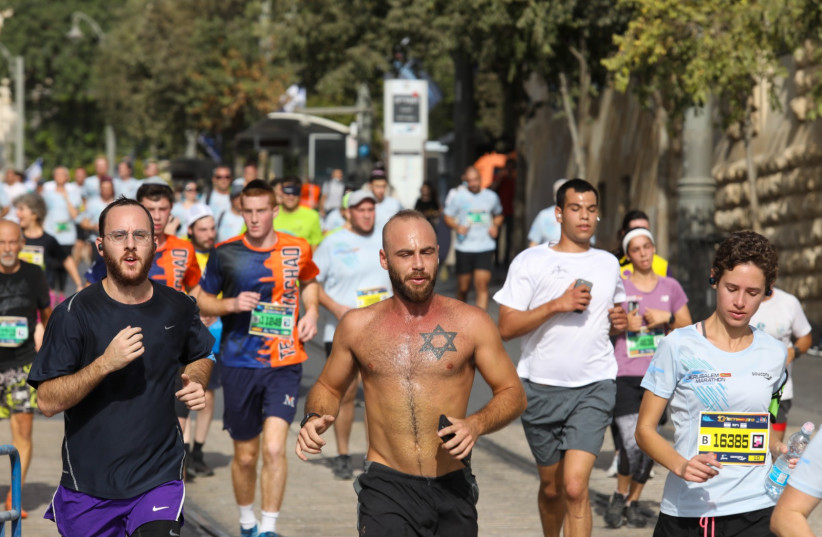If you’ve recovered from COVID-19 and registered for the 2022 Tel Aviv Marathon, here is everything you need to know if you want to run any competitive race.
This latest coronavirus Omicron wave has only just begun to subside. If you have had the virus recently, here are some things you need to consider before stepping to the starting line.
It seems that the fifth wave of the coronavirus will soon be behind us, and the running season, which brings with it exciting annual events, is coming up. For the Samsung Tel Aviv 2022 Marathon, in addition to the usual rules of preparation for strenuous running, there are now new guidelines which have become relevant in light of the pandemic.
We all know the benefits of exercise in general, and running in particular. These benefits haven’t changed, and yet there are now new perks for those who were infected, since athletes who had the virus have generally experienced milder symptoms and recovered faster, studies have shown.
We enjoy running. Some of us are even addicted to running, and we enjoy how it enhances our physical and mental health, an issue that has continued to gain scientific validity in many varied studies that have come out since the pandemic began. In order to minimize the risk of physical injury and to keep our health in check, it’s important to adhere to certain rules in training and while racing.

Among runners, many have recovered from COVID-19, even if they were asymptomatic.
For those of us who aren’t professional runners, this isn’t a competition against others, but a competition with others; a personal victory for each of us. We started with a dream to run a marathon, we stuck to a program and completed all the training sessions. There were difficulties, challenges and hurdles along the way, but we are so close to the starting line.
Tips for running a marathon
- Run wisely, and always be aware of your physical limits.
- Set goals that are realistic and won’t harm your health.
- Remember that even just getting to the starting line is a victory in and of itself.
- Take your new condition into account and adapt your running plan accordingly. Don’t overexert yourself.
Those recovered from the virus may be more vulnerable than others to injury, so be careful. Remember that you’re running for joy and health – you don’t want to get hurt.
For those who have recovered from the virus in the week or two before the run, I recommend considering limiting the distance and slowing your pace to avoid injury. Those who don’t feel ready or aren’t at their best are better off not running the race. We’re all human and must remember the limitations of our body, especially during the period of illness and recovery.
Remember, any active viral disease, even if it is latent and asymptomatic, can cause muscle damage, heat stroke or even heart muscle damage. If you don’t feel well while running - stop and call for help.
Even a skilled athlete can push their body into the danger zone while still sick or in recovery.
My recommendation is to perform a COVID-19 antigen test on the eve of the run. If it returns positive, don’t run. This will prevent a spread of the virus and will protect your health. The risk of infection is real, even for the vaccinated and recovered. Additionally, the risk of injury is even stronger when the body experiences overexertion, especially during illness and recovery.
Ahead of the Samsung Tel Aviv Marathon, an important medical study is being conducted by a team of doctors at the Ichilov Hospital in Tel Aviv, to determine how to better treat, and prevent, injuries sustained by runners. The study’s findings will come directly from data from this year’s marathon, and therefore highly depends on the cooperation of the runners as well as a short questionnaire at the end.
Dr. Eran Rapoport is the consultant and medical director of the Tel Aviv Marathon. He is an avid athlete, and a doctor who loves people and running.
